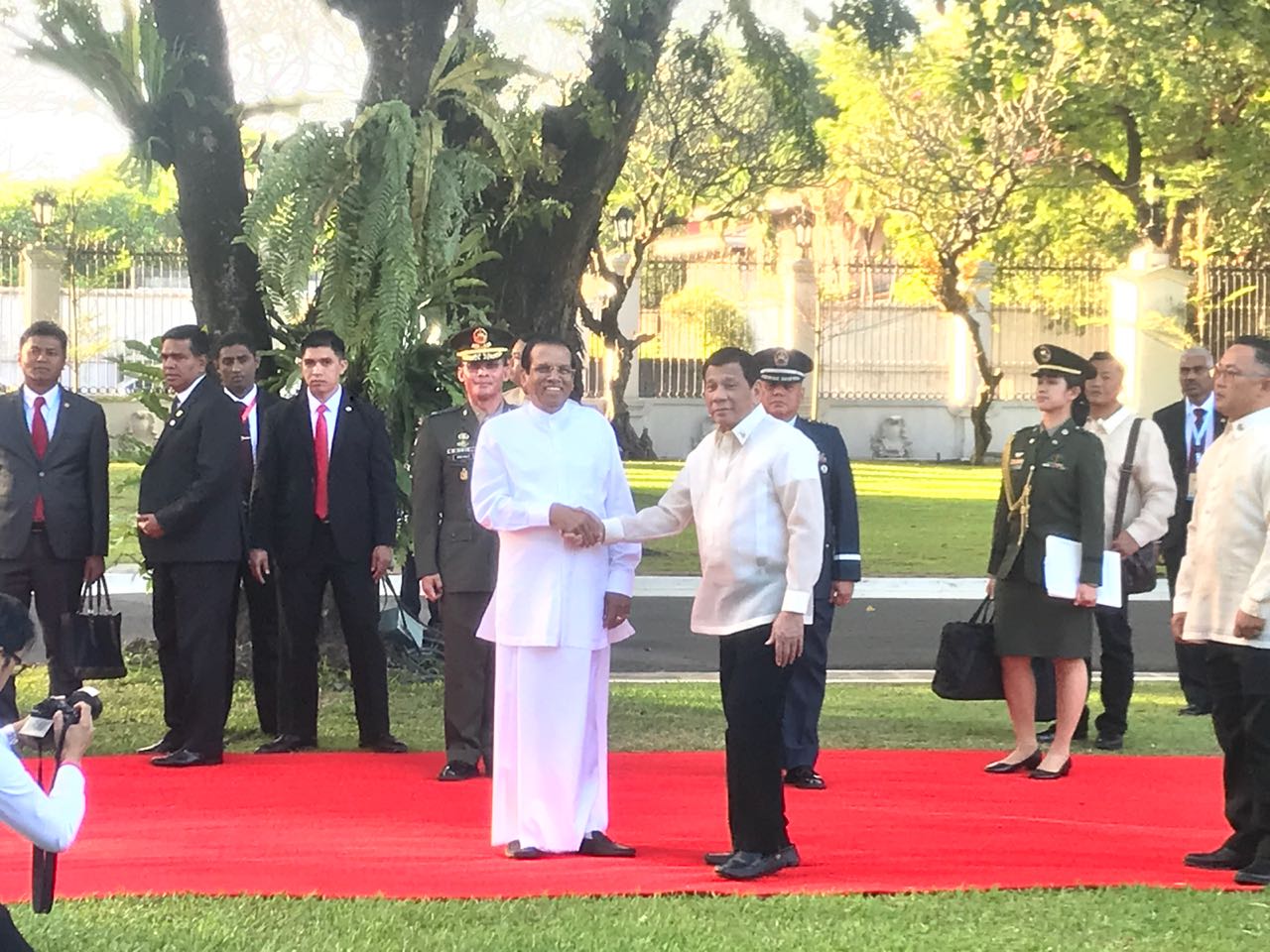Sri Lanka’s top court stays executions of 4 drug convicts

President Rodrigo Duterte welcomes visiting Sri Lankan President Maithripala Sirisena in Malacañang during the South Asian leader’s state visit to the Philippines in January. Sirisena praised Duterte’s harsh crackdown on illegal drugs as “an example to the world.” Darryl John Esguerra/INQUIRER.net
COLOMBO, Sri Lanka — Sri Lanka’s Supreme Court on Friday issued a temporary injunction against the execution of four people, a week after the country’s president announced he would end the country’s 43-year moratorium on the death penalty.
The court issued the injunction until Oct. 30 in response to a petition filed by a convict on death row against the move by President Maithripala Sirisena to execute the four people convicted of drug offenses. The Supreme Court will take up the case again on Oct. 29.
Sirisena, who visited the Philippines in January and praised President Rodrigo Duterte’s harsh crackdown on illegal drugs, announced last week that he has signed death warrants for the four amid alarm over drug-related crime in the country.
He said the dates of the executions have been decided, but they have not yet been announced.
Sirisena has said narcotic drugs have become a menace with 300,000 addicts across the island nation, which authorities say is being used by dealers as a transit hub. He said 60% of the country’s 24,000 inmates were jailed for drug-related offenses. Sri Lanka’s prisons were built to accommodate 11,000 people.
Article continues after this advertisementDrug trafficking is a capital offense, but no prisoners have been executed since 1976. Currently, 1,299 prisoners are on death row, including 48 convicted of drug offenses.
Article continues after this advertisementIn April, police publicly destroyed 770 kilograms (1,695 pounds) of drugs seized in 2016 and 2017. Police have seized 731 kilograms (1,608 pounds) of heroin, 1 kilogram (2.2 pounds) of cocaine and 1,607 kilograms (3,535 pounds) of marijuana so far this year.
Marijuana is the most widely used illegal drug in Sri Lanka, followed by heroin and cocaine. Drug-related arrests rose 2% in 2017 from the previous year to 81,156.
Last week, prison authorities recruited two new hangmen to carry out the execution orders after the two previous hangmen quit — in 2014 and last year — without executing anyone.
Sirisena’s move is facing mounting criticism from rights groups and foreign governments, including the European Union.
Sirisena had praised Duterte’s harsh crackdown on illegal drugs as “an example to the world.” Thousands of suspects, mostly urban poor, have been slain since Duterte took office in 2016. Rights groups have denounced what they say are extrajudicial killings. Police say most of the suspects were killed in encounters with officers.
Sri Lanka is predominantly Buddhist, a religion that advocates non-violence. Sirisena has said the country has had positive influences from all religions, but tough law enforcement is necessary to curb crime and maintain order.